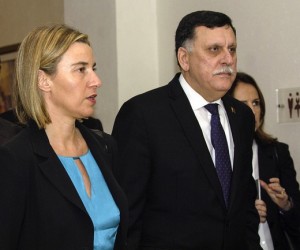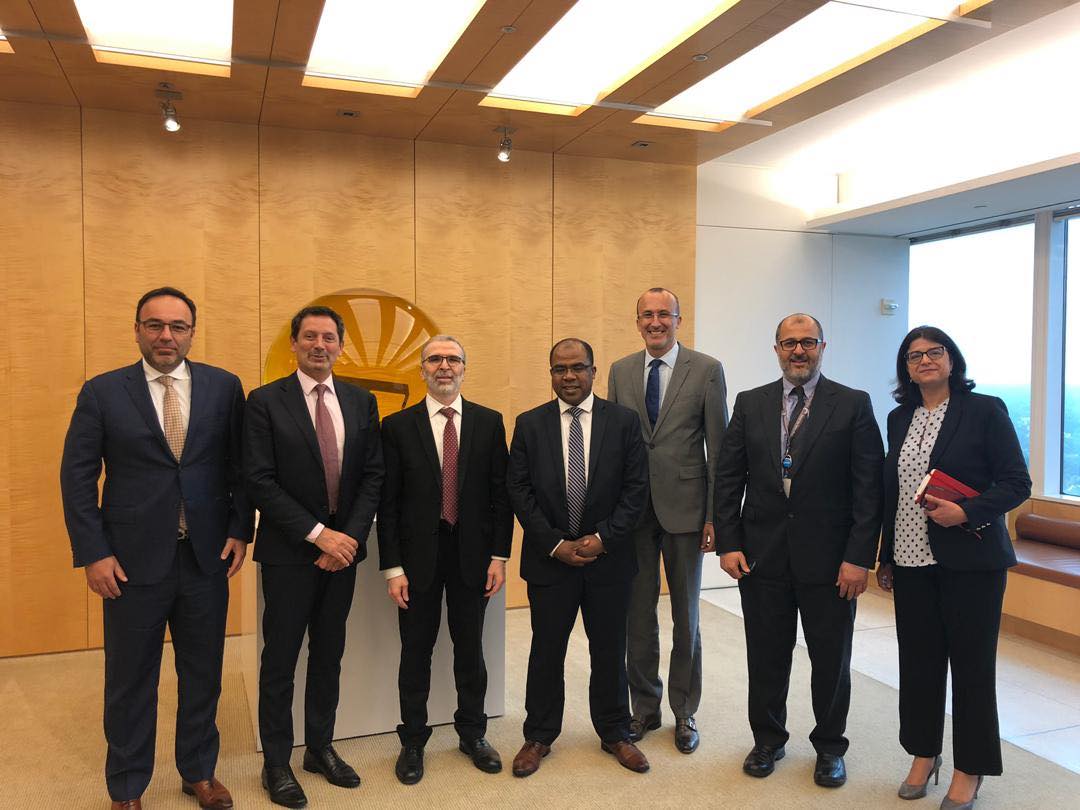By Sami Zaptia.

London, 14 May 2019:
Speaking yesterday at the end of the meeting of the EU Foreign Affairs Council in Brussels and after having met with Faiez Serraj head of Libya’s internationally recognized government, High Representative/Vice-President Federica Mogherini said the EU is united in its foreign policy on Libya.
Mogherini reiterated the position set out in the EU Council statement which is a catch-all statement supporting Serraj, UNSMIL’s Salame and his efforts, condemning terrorists and violations of International Human Rights, calling for a ceasefire – but not condemning Khalifa Hafter’s attack on Tripoli.
From Serraj’s point of view, the statement had the hallmarks of French intervention all over it. It failed to call on Hafter to return his forces to their point of origin and equated Hafter with Serraj, which Serraj had requested the international community not to do.
Here are Mogherini’s full remarks:
Is the Council talking with one voice on Libya?
We spent most of the Council today in presence of the UN Secretary General Special Representative [in Libya] Ghassan Salamé that we want to thank not only for his presence with us today and for the constant coordination he has always kept with us, but also with others in the region – from the League of Arab States to the African Union. He has always been available to all of us. But most of all, we want to thank him]for the impressive work that he and his team are still doing in Tripoli with the right approach [according] to us.
Today, yes, the European Union speaks with one voice on Libya. If you see divisions among and inside regional organisations, there are none inside the European Union today. There might be some inside other regional organisations around Libya. The European Union is clearly stating today that, first of all the LNA [Libyan National Army] military attack on Tripoli and the subsequent escalation in and around the capital constitutes a very serious threat to international peace and security, and that it opens the way for terrorist activities to pose more threats to the international community and obviously to the Libyan people.
Second, a united message that the European Union and its Member States passed is that the parties immediately implement a ceasefire and to engage with the United Nations to ensure a full and comprehensive cessation of hostilities.
Third, recalling that there is no military solution for the crisis in Libya but there is a solution to the crisis in Libya, that goes through recommitment to the UN facilitated political dialogue. We call on all parties to re-engage on the political dialogue that was in place before the attack on Tripoli started a few weeks ago.
The last message I want to pass is a united message of all the Member States: our full and determined support to the work of the Special Representative of the Secretary-General [in Libya, Ghassan Salamé] in these weeks.
I have not detected any signs of divisions between and among the Members States of the European Union on Libya today, as well as in the last weeks. Now and today, the European Union is very much united behind the efforts that the United Nations are trying to put in place to re-open the space for a political process.
I have also discussed it this morning with Prime Minister [of the Government of National Accord, Fayez el-] Sarraj that visited Brussels today. I conveyed the same messages to him.
If there is one interlocutor, one global player on which the United Nations and the Libyan people can count today, it is the European Union.








